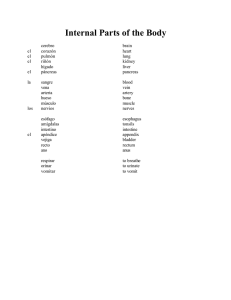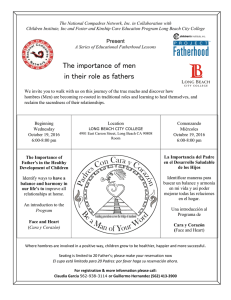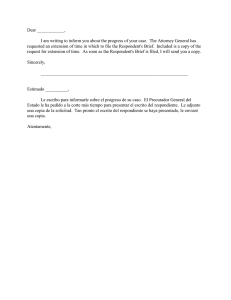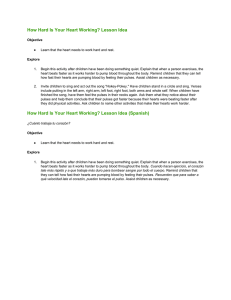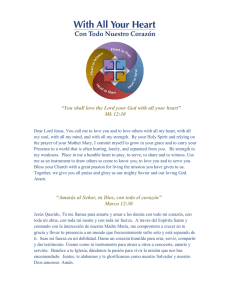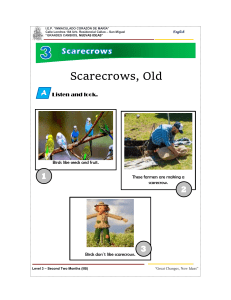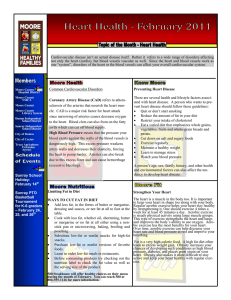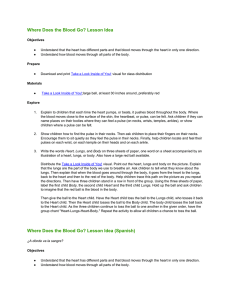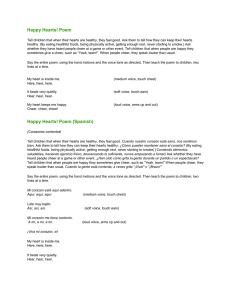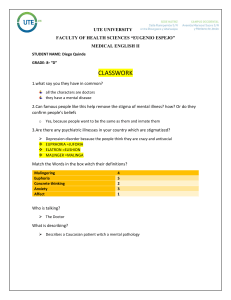Warning Signs of a Heart Attack
Anuncio
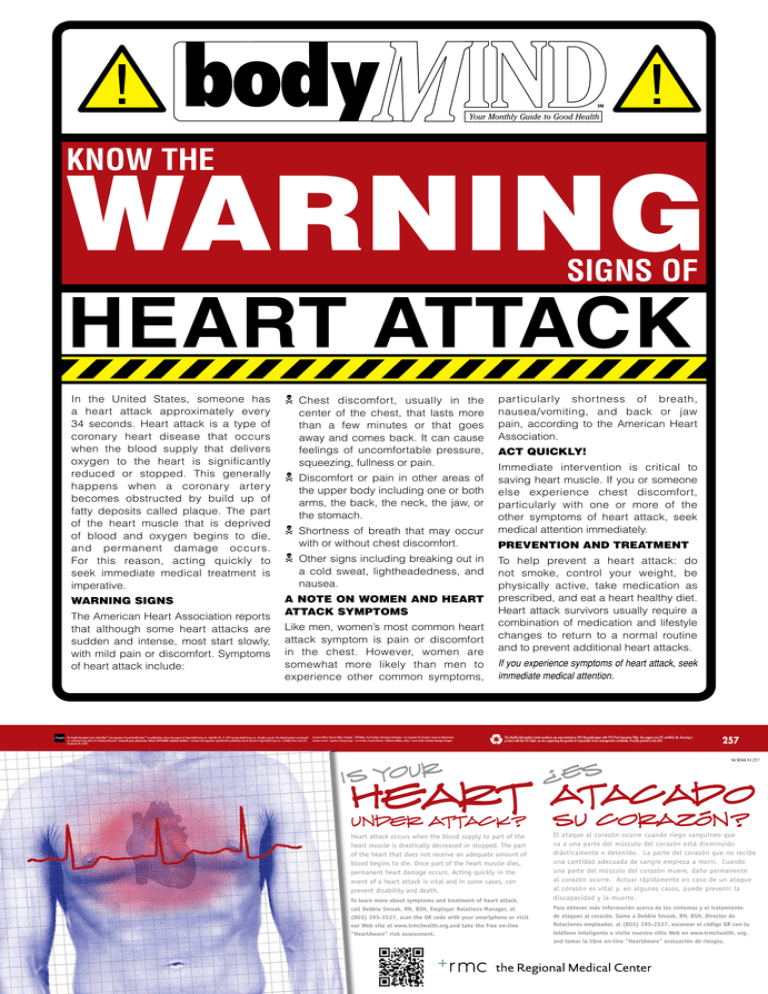
KNOW THE WARNING SIGNS OF Heart Attack Chest discomfort, usually in the Warning Signs A Note on Women and Heart Attack Symptoms The American Heart Association reports that although some heart attacks are sudden and intense, most start slowly, with mild pain or discomfort. Symptoms of heart attack include: SM SM center of the chest, that lasts more than a few minutes or that goes away and comes back. It can cause feelings of uncomfortable pressure, squeezing, fullness or pain. Discomfort or pain in other areas of the upper body including one or both arms, the back, the neck, the jaw, or the stomach. Shortness of breath that may occur with or without chest discomfort. Other signs including breaking out in a cold sweat, lightheadedness, and nausea. Like men, women’s most common heart attack symptom is pain or discomfort in the chest. However, women are somewhat more likely than men to experience other common symptoms, The Health Information Center: Body/Mind and companion Personal Health Guides are published by, and are the property of, Aegis Health Group, Inc., Nashville, TN. © 2012 by Aegis Health Group, Inc. All rights reserved. The editorial content is not intended as a substitute for the advice of a medical professional. Consult your physician about all health-related matters. Comments and suggestions regarding these publications may be directed to Aegis Health Group, Inc., 8 Cadillac Drive, Suite 450, Brentwood, TN, 37027. Executive Offices: Pearson Talbert, President / Bill Walker, Vice President, Information Technology / Lori Copeland, Vice President, Finance & Administration Creative Services: Zografia, A Design Group—Lou Everhart, Creative Director / Katherine Williams, Editor / Jessica Smith, Production Manager/Designer particularly shortness of breath, nausea/vomiting, and back or jaw pain, according to the American Heart Association. Act Quickly! Immediate intervention is critical to saving heart muscle. If you or someone else experience chest discomfort, particularly with one or more of the other symptoms of heart attack, seek medical attention immediately. Prevention and Treatment To help prevent a heart attack: do not smoke, control your weight, be physically active, take medication as prescribed, and eat a heart healthy diet. Heart attack survivors usually require a combination of medication and lifestyle changes to return to a normal routine and to prevent additional heart attacks. If you experience symptoms of heart attack, seek immediate medical attention. The Health Information Center products are now printed on 50% Recycled paper with 25% Post Consumer Fiber. Our papers are FSC certified. By choosing a product with the FSC label, we are supporting the growth of responsible forest management worldwide. Proudly printed in the USA. Is YoUR ? In the United States, someone has a heart attack approximately every 34 seconds. Heart attack is a type of coronary heart disease that occurs when the blood supply that delivers oxygen to the heart is significantly reduced or stopped. This generally happens when a coronary artery becomes obstructed by build up of fatty deposits called plaque. The part of the heart muscle that is deprived of blood and oxygen begins to die, and permanent damage occurs. For this reason, acting quickly to seek immediate medical treatment is imperative. Es 257 SCRMCO 257 HEART ATACADo sU CoRAz0N? UNDER ATTACK? Heart attack occurs when the blood supply to part of the heart muscle is drastically decreased or stopped. The part of the heart that does not receive an adequate amount of blood begins to die. Once part of the heart muscle dies, permanent heart damage occurs. Acting quickly in the event of a heart attack is vital and in some cases, can prevent disability and death. To learn more about symptoms and treatment of heart attack, call Debbie Smoak, RN, BSN, Employer Relations Manager, at (803) 395-2527, scan the QR code with your smartphone or visit our Web site at www.trmchealth.org.and take the free on-line “HeartAware” risk assessment. El ataque al corazón ocurre cuando riego sanguíneo que va a una parte del músculo del corazón está disminuido drásticamente o detenido. La parte del corazón que no recibe una cantidad adecuada de sangre empieza a morir. Cuando una parte del músculo del corazón muere, daño permanente al corazón ocurre. Actuar rápidamente en caso de un ataque al corazón es vital y, en algunos casos, puede prevenir la discapacidad y la muerte. Para obtener más información acerca de los síntomas y el tratamiento de ataques al corazón, llame a Debbie Smoak, RN, BSN, Director de Relaciones empleador, al (803) 395-2527, escanear el código QR con tu teléfono inteligente o visite nuestro sitio Web en www.trmchealth. org. and tomar la libre on-line "HeartAware" evaluación de riesgos.
